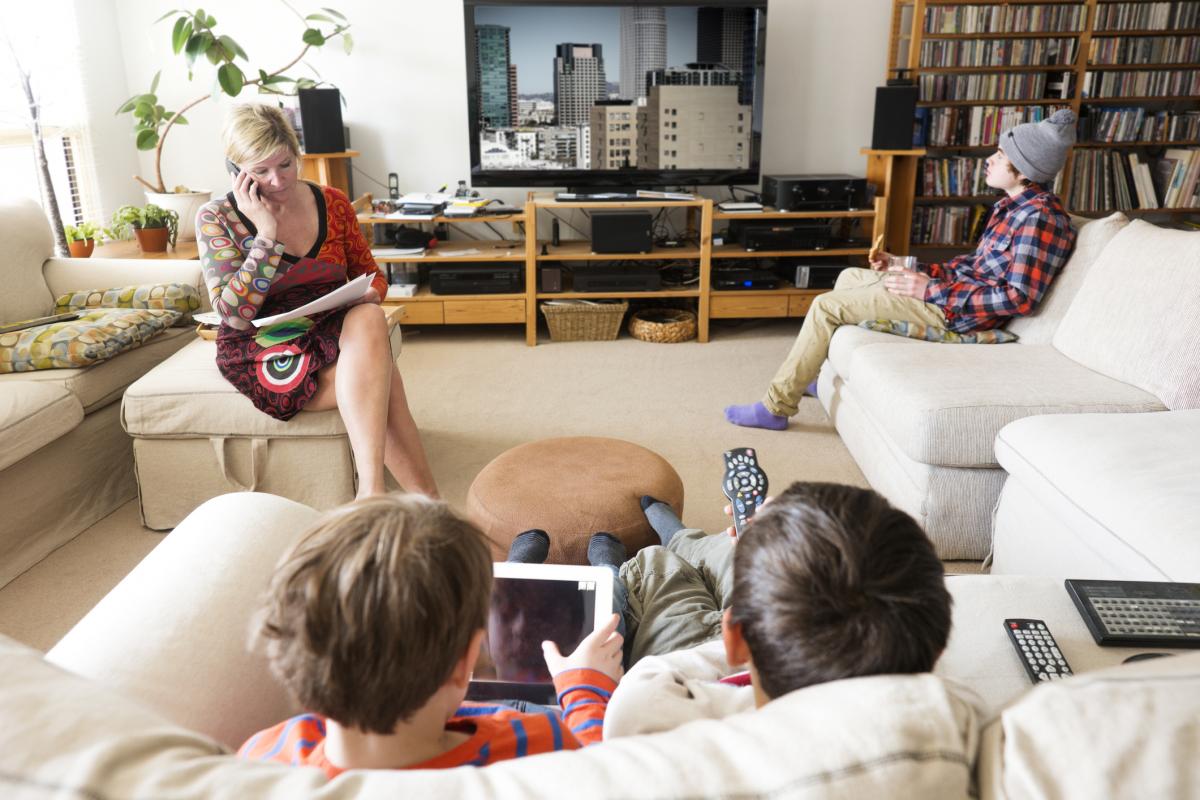It’s 6:30 a.m., and the alarm on my phone is telling me it’s time to get up. I open my eyes, turn it off, and quickly scroll through the weather and any other important news I might have missed overnight. Ten minutes later, feeling well-informed, I roll out of bed to get ready.
We have to face it, technology is all around us. We use it to help us get ready in the morning. We use it for school, for work and for entertainment. In particular, screens such as smart phones, tablets, computers and TVs are very much part of our daily lifestyles. I’m always amazed to see how quickly kids figure it out. Sometimes it feels like they know how to navigate technology and screens better than I do (and let’s be honest … they probably do).

While screens may help us complete tasks during the day, we should recognize when they take up too much of our time. When they do, it interferes with us participating in other healthy activities during our free time, like going out for a hike, playing some board games or eating dinner as a family.
Limiting screen time matters more for kids
On the 2018 ParticipACTION Report Card, Canadian children and youth get a ‘D’ grade for sedentary behaviours, meaning they’re not meeting the screen time recommendations within the Canadian 24-Hour Movement Guidelines. That’s the scientific conclusion, but what it means is simply that Canadian kids need to move more.
Recreational screen time (using screens during free time) is a sedentary activity that not only affects physical health, but can also affect a child’s early development (e.g., poor language development), and their psychosocial health (e.g., mental and emotional well-being).
While this year’s ‘D’ is an improvement from the failing grade in 2016, we still have work to do.
How much screen time is okay?
There’s no minimum amount of screen time kids need.
The 24-Hour Movement Guidelines say that:
- Children under the age of 2 should not have any screen time
- Children ages 2-4 should have less than one hour of screen time per day
- Children and youth ages 5-17 should have no more than 2 hours of recreational screen time per day
How can we improve?
To promote healthy behaviours in children and youth, the City of Guelph is one of 45 communities in Ontario participating in the Healthy Kids Community Challenge. Named as Energize Guelph, the community has participated in various themes including healthy eating and physical activity. The last theme of the Challenge is Power Off and Play and we recently co-hosted a Power Off and Play event to share the importance of balancing screen time with other activities. Part of the event included ideas and demonstrations of activities that can replace screen time, like juggling, Jenga and crafting.

At home, try following these three steps to make Powering Off a bit easier:
- Meet the screen time guidelines. The less screen time the better! Try tracking your screen time and/or the fun activities you do as a family, using this sheet: Keep Track of All the Ways You Power Off and Play (PDF)
- Put away screens during meal times and at least one hour before bed. Meals with screen time have been linked to overeating, and screens in the bedroom may cause a delay in falling asleep and poor sleep quality.
- Find other activities to do! To power off and play you can draw, play some board games, or head outside and throw a disc around! The possibilities are endless and don’t have to be costly. You could even host your own neighbourhood Power Off and Play event this summer.
Find out more about these three steps in this resource from the Health Kids Community Challenge (PDF, 10 pages).
With screens and technology being such a big part of our everyday lives, it’s understandable that our children will be exposed to them. Just remember that a balance is important and try using any of these three tips to help you and your family meet the screen time guidelines.
As adults, we should model healthy behaviours for the little kiddos in our lives, so let’s all put down the screens for a bit, and power off and play!

